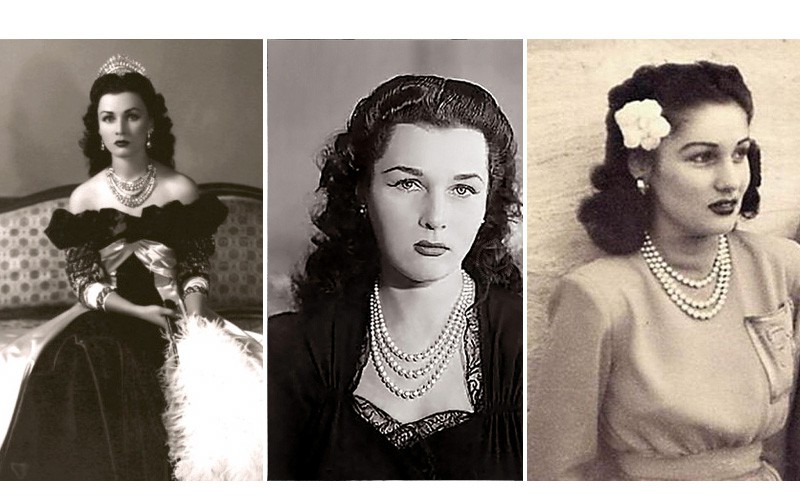The idea of being a princess is thought tobe a fairytale coming to life by many women,but reality is far from that misconception. Owning diamonds and sparkling tiaras, and living in a lavish palace indeed sounds like a fairytale, but this is just our stereotypical perception of princesses.
On November 5th, 1921, in Alexandria, Egypt, the eldest sister of King Farouk Princess Fawzia Fouad was born. Princess Fawzia, oras historian scholars like to call her “The Lily of The Nile”, spent most ofher childhood veiled between the palace’s gigantic hallways, without any actual communication with the outside world, until she became a teenager.
Everything in either Princess Fawzia’s life or any of her younger sisters’ was strictly planned from A to Z, so there is always a price to be paid for being a princess. Princess Fawzia, just like many other princesses throughout history, was forced into marriage in 1939when she was only 17 years old. Fawzia’s Marriage to the heir of the Iranian empire; Shah Mohamed Reza Pahlavi, was nothing more than a royal bond to tighten the relations between two of the most powerful countries in the region back then. As a female in the royal family, Fawzia did not have the right to either express her opinion or oppose the King’s orders.
This marriage was an absolute milestone in Princess Fawzia’s life; a teenaged girl who was suddenly transitioned from the cosmopolitan lifestyle of Cairo back in the 1930’s to the city of Tehran. Fawzia was young and completely oblivious to the Iranian culture and how it was much less undeveloped when compared to Cairo’s. Moreover, she was internationally considered one of the most fashionable icons in the world, so she was definitely not used to Iran’s conservative culture.
Fawzia was constantly pressured by her husband and mother in law Queen Tadj Ol Molouk to deliver a male heir to the Iranian throne, but sadly she did not grant their wish when she gave birth to Princess Shahinaz. On the other hand, King Farouk was urging Fawzia to encourage Iran to back Egypt up against the British occupation.
Throughout the whole time she lived in Iran, Fawzia felt like an outsider. She would extend her visits to Cairo, which disturbed Shah Pahlavi greatly. Fawzia got into a severe phase of depression in Tehran which led her to suffer with malaria.

